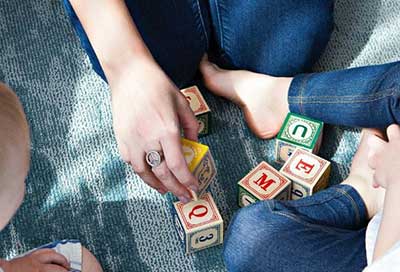
5 Ways Your Child Can Become A Peer Volunteer
Children with autism often find it challenging developing and maintaining meaningful friendships with other children, due to their deficits in understanding relationships and the appropriate social skills. As such, some children with autism may end up playing by themselves or prefer being alone, while some prefer interacting with adults instead of typically-developing peers of their same age.
Here at EAP, we often set up peer plays (also known as playdates) for our kiddos as part of their therapy programme. Each peer play session is facilitated by one of our trained therapists, with the goal of teaching our kiddos how to demonstrate appropriate behaviours and social skills with their peers, and to give them a safe space and fun structure to build relationships with another peer.
From time to time, we have had several typical peer volunteers who have so graciously volunteered their time to come in for peer play sessions with some of our kiddos. Not only are these playdates highly beneficial for our kiddos with autism, but the peer volunteers also get to have a lot of fun and have developed some meaningful friendships with our kiddos!
-04.jpg)
Here are 5 simple ways you can get your child to become a peer volunteer:
1. Accept people with different abilities and special needs
As adults and parents, it is important that we first demonstrate an awareness and be informed about the different disabilities and special needs in our society. In order to break the stigma against disabilities, we must first choose to accept people with different abilities and needs, and accept them as part of our community and larger society.
2. Talk to your typically-developing child about people with different abilities and special needs
When the opportunity presents itself, as parents and adults, we should objectively talk to the children about other people with different abilities and needs, and help them understand that this is a part of their society. For instance, we can explain how a person may require a wheelchair because he injured his leg, and the wheelchair helps him to move around. In another instance, we can explain how some people may not have the ability to speak, and hence they would need to rely on sign language, visuals, or other devices to help them communicate.
3. Teach your child simple ways they can show kindness to people with different abilities and special needs
Instead of discriminating or isolating people with different abilities and needs, we can teach the children how they can show kindness and help people who may have special needs. For instance, if they see a friend playing alone during recess, they can invite the friend to play. In some instance, we tell our typical peer volunteers that we need their help to teach our kiddos with autism how to play nicely, take turns and share.
4. Have your child become a peer volunteer and set up regular playdates
Here at EAP, we would welcome peer volunteers of different ages, in order to set up playdates for our kiddos according to different ages and/or type of learners. We would recommend for each playdate to be facilitated by an adult, whether a trained therapist, parent, or trusted adult. Before the start of each playdate, we would recommend for the adult to go through some simple rules with the children and to set up a reward system for when the children play appropriately with each other. For true and meaningful friendships to be established, it would be important for the playdates to be carried out on a regular and continuous basis (e.g. weekly, fortnightly, etc.).
5. Debrief with your child after each playdate
After each playdate, it would be important to debrief with your typically-developing child as well as with the child with autism. Here at EAP, after each playdate, we like to debrief with our kiddos, to let them know what went well during the playdate, and what are some behaviours or skills they still need to work on while playing with their peers.
-01.jpg)
Some of the parents of our typical peer volunteers even had great things to say about these playdates. Here’s what they had to say:
“We have wanted our daughter to grow up accepting of all children and we are delighted that she has expressed that she would like to be a teacher for children with autism at EAP! P.S. She’s only 4!“
” I have learned that you are never too young to help reach out to others in need. It was a wonderful learning experience for both Leah and I. It open my eyes to new techniques which we can use use daily on all children and even gave me new ideas on how to deal more with children on a film set. Always good to learn something new.“
“Growing up I was taught by my parents to respect and be accepting of all people from different walks of life. Having a young 3 year old daughter, I wanted to help her learn this lesson early on in life too. I find that the more we educate our children to be accepting of different people, the more they grow up with compassion rather than fear of the unknown. Through her time of volunteering at EAP, I have seen her grow and I have also learned a few valuable lessons along the way. We strongly urge other kids and parents to give some time to volunteer. Not only do you change the lives of others, but the experience will enrich your life too.”
If you are interested for your child to become a peer volunteer, or if you have any further questions, please do not hesitate to contact us! Simply send us an email to enquiries@autismmalaysia.com or give us a call at 03-2094 0421!